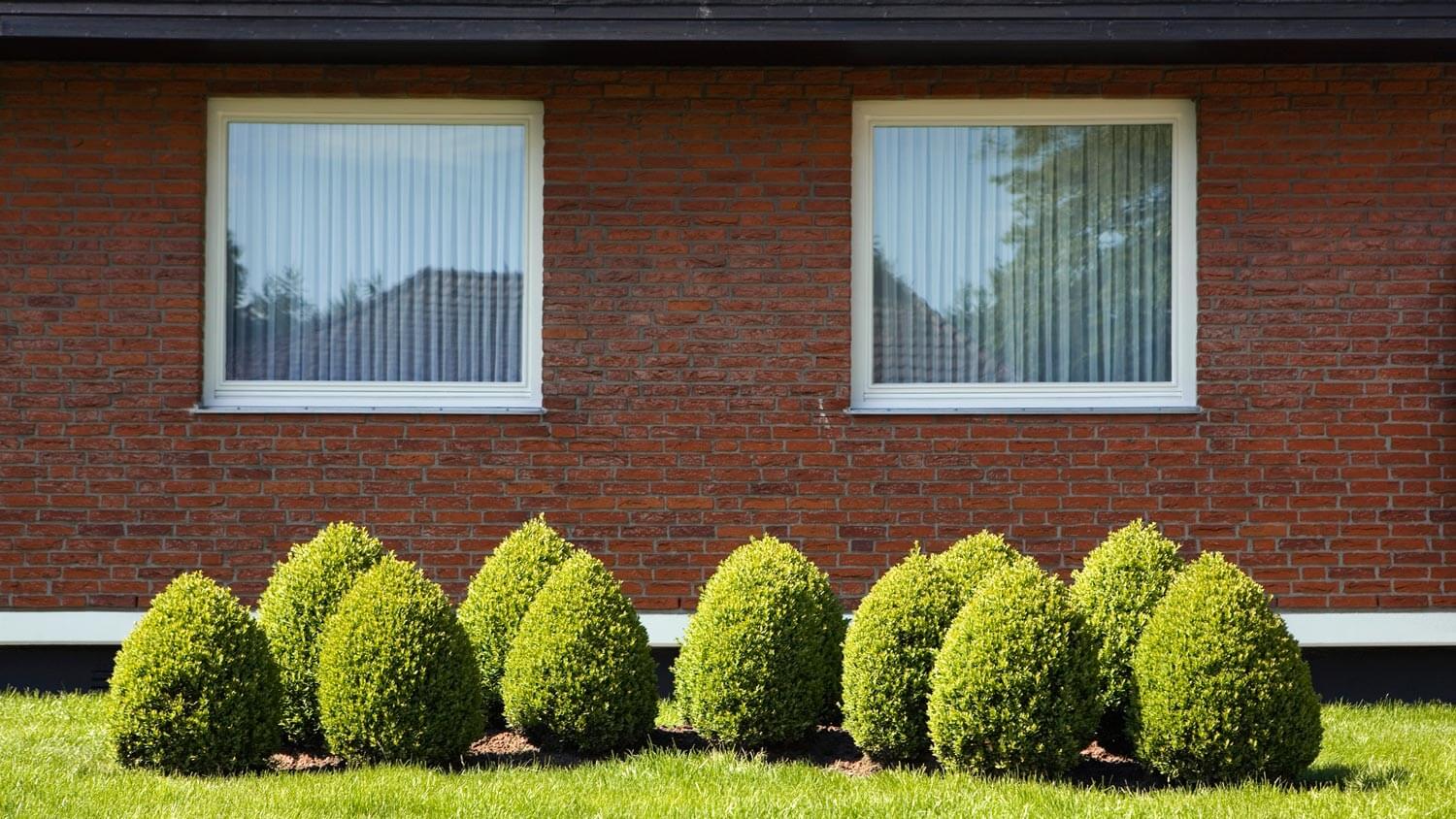Wood vs. Brick Houses: Which Is Best for You?
Choosing between brick and wood isn’t just about aesthetics—you’ll also want to consider factors like your budget, climate, and the amount of maintenance you’re willing to take on


Highlights
Brick houses have a higher resale value than wood homes.
Wood is faster and more affordable to build with than brick.
Wood houses are more susceptible to pest and mold issues than brick.
Brick performs poorly in areas where erosion and earthquake dangers lurk.
Would you be happier in a wood or brick house? It's a big question to ask when buying or building your next house. The truth is that both materials offer some very concrete benefits. Step inside our guide to wood versus brick houses.
Wood House Pros & Cons

More than 90% of new houses have wood frames. Here’s a closer look at why wood is such a popular building material.
Pros
If you're building a new home, wood is a faster and cheaper option compared to brick. The typical cost to build a timber frame home ranges from $150 to $400 per square foot.
Wood homes go up more quickly than brick homes because wood is lighter and easier to work with. And once the construction of the frame is done, wood's quick-drying ability means that electricians, plumbers, and plasterers can get in much faster to complete each step.
Wood also happens to be a good thermal insulator. It's especially great in colder climates because wood absorbs warmth. Wood offers decent levels of humidity absorption and noise dampening, too.
Finally, wood offers tremendous flexibility in terms of style. It's easy to customize the look of your wood house without feeling limited.
Cons
Compared to other building materials, wood may not hold up as well against natural disasters such as fire, flooding, strong winds, and heavy storms. Wood houses can also be more vulnerable to rot and mold issues than other types of houses.
You might also find that pest control is more challenging with a wood house. Common pests like termites, carpenter ants, and wood borers can easily destroy portions of wooden homes if they aren't detected quickly.
Brick House Pros & Cons

Who doesn't love a stately brick home? Prestigious historical neighborhoods around the country are filled with them.
Pros
Brick homes offer great insulation. While brick's ability to retain heat is helpful in cold climates, brick can also keep your house’s interior cool during the hot summer months. And brick is great at absorbing humidity to keep your home dry.
Although building with brick can cost more up front, brick houses tend to be a good investment, because they often sell for more than other types of homes.
Cons
While the brick aesthetic is cherished, brick offers much less flexibility in terms of style compared to wood. Your local home builders may have fewer layouts available for brick.
Brick maintenance can include tasks like repointing the exterior and tends to be much pricier than the maintenance needed for the vinyl siding that's typically used on wood houses. You also have to be careful about vegetation growing too close to your brick home. What looks like a gorgeous sheet of climbing ivy against the side of your house could actually be destroying the brick.
Lastly, you could be limited in your desire for a brick house if you live in certain parts of the country. Brick is notoriously unstable in earthquakes and can be destroyed by the erosion that’s common in mountain, valley, and lake areas.
Wood House vs Brick House

Which style is going to lead to happy homeownership? When deciding between wood and brick, here are some factors to consider:
Appearance
This really comes down to personal preference. Wood houses provide more style options, and you can even use bold siding colors. However, brick is prized for its rich, historic look.
Most Attractive: Brick is generally considered the more beautiful option. Of course, you may want to consider this on a house-by-house basis.
Durability
While it's almost a tie, brick does offer protection against the rot and mold that can cause problems in a wood house. But keep in mind that any underlying problems with a brick house can be more expensive to fix than in a wood house.
Most Durable: Brick houses are generally considered more durable against the elements unless you're in an earthquake zone or a mountain area known for erosion.
Price
Brick houses generally cost more than wooden ones, but they also have a higher resale value. For first time homeowners and people on a budget, choosing wood can get you closer to your goal of owning a home.
Most Affordable: Wood
Ease of Repair/DIY-ability
Brick homes will eventually need tuckpointing or repointing. This is a complex job that typically requires professional expertise. While wood homes often need to be resided every 30 years, the process is considered fairly simple.
Easiest to Repair: Wood
Length of Life
Wood homes are intended to last between 100 and 150 years. By contrast, a brick home can last up to 500 years with proper maintenance.
Longevity: Brick
Eco-Friendliness/Sustainability
The answer might surprise you. While modern building methods make both wood homes and brick homes relatively green, wood houses are more eco-friendly thanks to sustainable timber practices. Producing and transporting brick can require more energy and greenhouse gas emissions.
Greenest Pick: Wood

